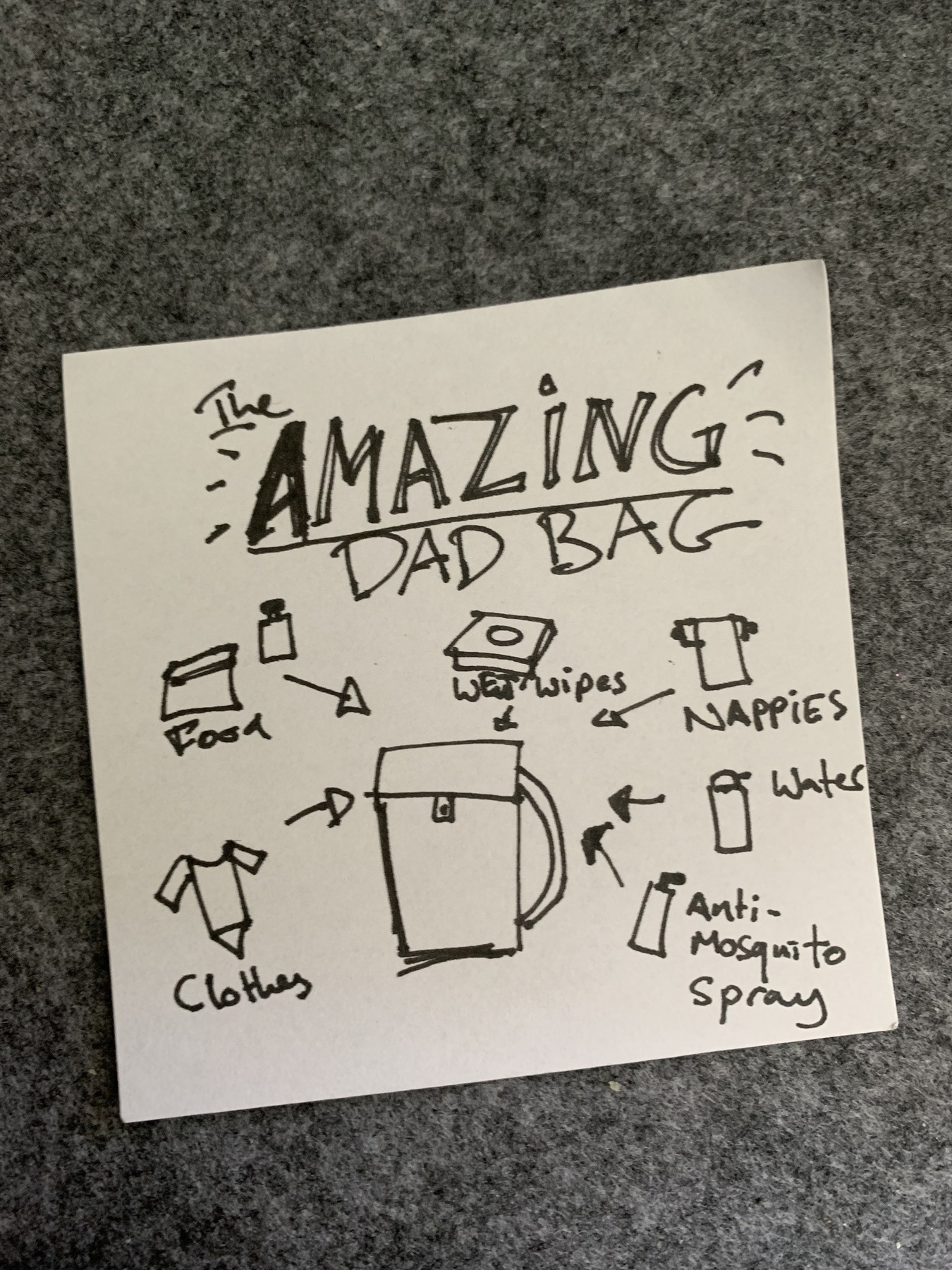Category: Longform
You are viewing all posts from this category, beginning with the most recent.
[spoilers?] Thoughts on the Dr Who specials
I really enjoyed the Dr Who specials, but also didn’t really like some of the decisions like the reason for his old face and the bi-generation (which apparently was always a myth but isn’t explained at all. Shouldn’t he turn into two new people? Otherwise wouldn’t it be myxosis and he should be two of him. Also isn’t it amazing that David Tennent’s Doctor TWICE gets to go off and live a normal life. These kind of changes feel like rewriting the lore of who for no reason (okay it’s because ratings had plummeted and people love Tennent and so they now can keep him around for whenever, maybe a bonus one off adventure.
I loved the Toymaker and the Wide blue yonder was great (the clones who have all the same memories made it fantastic for the mystery of how do you tell them apart).
It was the first who I had seen in years (a fair part due to not being in the UK) and I don’t know. The new dr seems fun and if they keep it on Disney+ I will certainly give it a try.
Essay on OT references in Matt 4 - Jesus temptation - Book four of the Psalter
I had checked the context of Psalm 91:11 for the Psalm, but not the whole Psalter. Psalms stand alone, right? Wrong, past-Chris. You know better than that. Psalm 91 is early in the fourth book, just after a Psalm of Moses for forgiveness for the golden calf (during the exile), the whole book has a theme of hope in YHWH as the kind of all creation. It is a response to the previous book’s messianic longing during the exile. Interesting that this is the book of the Psalter Jesus quotes from.
The action button isn't a great camera shutter button
I started using the action button for the camera, but this is not the best choice. It’s fine for opening the camera (I quite like that), but as a shutter it doesn’t work (for me). I find I put my finger too close to the lens and so it can sneak into photos, especially when used one handed. Plus, it’s just not a comfortable position. It would be better if a) the volume down was the action button. b) it was under the power button on the other side c) Maybe on the bottom left hand corner or top right hand corner for two handed use? I think I’m going to switch to using it with a shortcut, maybe some sort of quick capture system.
A hike through ojców national park
Yesterday my team at work decided to do a more unusual team building than the typical go karting or axe throwing that happen in IT companies across krakow. Instead, we walked through a national park and had grilled trout, caught from the river.
It was a great, relaxing time.
In the evening, we went for a more traditional outing — contemporary Israeli cuisine — but the park was the real star.




Turning my iPad into a focused creation device
This quarter, I’m focusing on writing.
I’ve had a writing habit for a long time, but since I became a professional copywriter, it’s been harder to write the type of content I want to. So, I’m focusing on my writing habit.
The only problem: distractions!
There are so many of them all over the place. Sometimes I’t barely a minute between sitting down and when I get swamped my emails, notifications or a youtube rabbit hole.
My cure? Making a focused creation device.
Enter the iPad.
A creation iPad
My goal is to remove the apps that distract me, and leave only the ones that allow me to create. That way, I have a device geared to creating new things rather than scrolling the endless feed.
There are a few apps I use to create
- Procreate
- Drafts
- Obsidian
- iA Writer
Then some to play
- OnSong - a sheet music application
- Paprika - A recipe management app
- Kindle/iBooks/Scribd et al - reading is play, right?
And there are a few apps that distract the hell out of me
- Safari
- YouTube
- Messaging apps
- Social networks (Instagram & Microblog. Yes, even you.)
Plus some which are kind of distracting but I still need to use sometimes, like mail.
Not an anti-consumption device
You might have noticed that there are some consumption apps there like the kindle and Scribd. On the one hand, these are not creation, they are consumption. If I wanted an anti-consumption device, I should remove them. And yet the kindle and other ebook readers are some of the highest value apps on my iPad.
Sometimes the ideas within the books I read provide the impetus for new creative works. And while that can also occur with youtube or another service, the hit ratio is lower and I’m more likely to choose one of them instead of creation.
So I’m happy (for now at least) leaving them on my iPad as I try this experiment.
Will it work?
I’ve debated doing this in the past and always found it tricky.
No single device seems to be a perfect “distraction free” or “creation” device. There are times I need to look up data on the mac, there are times I want to check a message on my phone, and my iPad is arguably the best web browsing experience.
But I think this is the best action to help me create more.
Procreate, after all, is ONLY on the iPad. And using the ipad as a distraction free writing device is great (as long as you have a keyboard to go with it).
So I’m giving it a go and I’ll report back later.
What's in my dad bag?
Whenever I’m with my kids, I have my “Dad bag” with me.
Its content varies slightly depending on which of my three kids is with me, but here’s the basics of it.
- Nappies
- Suncream
- Wet wipes
- Muslin rags
- Sandwiches
- Bottles of water
- Anti-mosquito spray
- Fruit Mousse for the kids
- A change of baby clothes (full set)
- A backup t-shirt for me, incase of vomit
- Backup shorts for the potty training child
Sometimes I’ll take a few extra items like more food or a picnic rug, but that’s the main gist of my bag (although If I don’t have certain kids with me, I can take fewer things).
Overall, it’s a great pack to have but there’s one item I’m missing.
A backup battery.
My 5 year old iPhone Xs doesn’t have the battery life it used to, and if I don’t charge it during the work day, It can lead to some issue. Like not being able to warn my wife when we’re heading back home or asking if we should get something from the shop.
My one pro tip
If you have certain items you need for one kid or another, try to group them together in a mini kit or bag (we just use Ikea resealable bags). That way, if one parent takes one kid and the other another, you have the right nappies with you at all times.

Play the ball, not the man.
This is one of my core values.
It’s a phrase taken from Football [^1] and means “debate the idea, not the person.”
On one level, this is a reminder not to fall down to ad hominem attacks, but it goes beyond that too. When we look at bad behaviour, we should consider the system that created the issue as well as calling out the behaviour, not the person.
This is one of the things we try as parents.
We don’t say “you’re being mean” or “you’re silly”, but “it’s not nice to…”. Of course, the other person might not notice the difference, particularly over topics their identities are tied to. But at least this option allows people to change.
When we play the ball, we have the option to discuss the issue, not ourselves.
Exceptions: abusers and repeat perpetrators
Of course, sometimes the behaviour needs to be specifically called out.
When someone abuses someone else, commits a crime or a great injustice, they need to be called out. Even in these situations, it’s still good to focus on the actions and showing how they are wrong rather than the person who perpetrated them. After all, some people can rush to defend an obvious corrupt government official just because he happens to be in their party affiliation.
Individuals as emblems of a system
A while back there was a professor who made a joke to point out the obvious discrimination against women in the sciences. It was clear satire to most of the attendees of the conference. One attendee, a journalist then denounced the professor on Twitter leading to his eventual dismissal. When the transcripts came out that showed his was joking and pointing to the ironies in his own life, many still attacked him.
He was an emblem of the problem.
That’s a dangerous stance. When we start to attack someone rather than the actions, we can infuse their actions with all sort of other beliefs. “They might not have said X, but this is exactly the kind of thing that leads to X.” So we’d had just better assume they believe or do X anyway.
Nonsense.
It’s okay to point out the slippery slope or common beliefs but that’s why we need to attack the broader issues (radicalisation, sexisim in science) rather than creating scapegoats to sacrifice.
While it might clean us of our sins, it doesn’t actually address the real problems.
[1]: sorry, Americans. “Soccer”. And yes, I know it was originally Associate football and widely called soccer in the UK till the early 90s. You know who doesn’t care, the rest of the world now.)
Internet points
The internet is a game.
If you play it well, you get “internet points.”
Most of the time they are pointless, but if you collect enough of them, you can become “internet famous” and even earn some income because of them. For the most part, internet points just give us a sense of feeling good or “valued”.
How do you get internet points?
I’m glad you asked.
You get internet points for doing actions that the internet validates. It doesn’t have to be the whole internet, it can just be a small group, but the more validation you get, the more points you get.
If you put a post and no one reacts, that’s zero points for you.
But if you get 10 reactions, even if one attacks you, that’s 10 internet points.
So if you want to win the never-ending internet game, you need to start an arms war. What got you points yesterday won’t today. That controversial or “risky pick” that you made last year, you need to go far crazier this year.
Even if no one else is competing with you, you need to compete with your past self because just as the addict gets less of a kick from subsequent hits, so the internet machine needs greater and crazier content to doll out its points.
Just look at Mr Beasts.
As you can guess, this is a problem.
The internet game is changing what we think and how we act. A nuanced opinion or debate is “boring” (even if it’s accurate) but a snappy comeback is pure gold (even if obviously wrong). Getting in a quick reply for your side will win you far more internet points than reflecting, waiting and offering a true critique.
Some versions of the internet are worse for internet points. Platforms with likes, hearts and algorithmic suggestions will always promote the game. But there are slower forms of the internet where we can play a different game.
The best way I've found to overcome my parenting rage
My kids know my dark secret.
I have an alternative, evil personality.
His name is “Grumpy daddy.”
I don’t turn green and suddenly rip my clothes when he emerges, but the personality shift isn’t that different. Instead of the peaceful and fun-loving father they expect, they have a grouch who just wants to be left a long.
I don’t like grumpy daddy, no one likes grumpy daddy, and yet he is a fixture of our house.
Just like Bruce Banner, I haven’t found a cure for my alternative personality, but I have found a trick that works well when I remember it.
Play grumpy
If I can put on a silly voice and give my reasons for being annoyed, I don’t transform into grumpy daddy.
It’s amazing how it works but I can instantly switch into a more appropriate mode. When the kids have done something wrong and we need to talk about it, I can talk about it sensibly AND THEY LISTEN! (I know!). And when it doesn’t really matter — most of the time — I can reveal how silly my grumpiness really is.
The only challenge…
Remember to make the jump isn’t easy.
When the red mist descends, the lizard brain wants me to react instantly. It wants me to escalate the tension, to give in and lose control. The adrenal makes it harder to have a cohesive thought let alone remember to be playful.
But I’ve had some success. And I’m writing this to remind me to do it more.
Thinking about this idea especially before a grumpy daddy situation arises can help, at least that’s what I’ve seen so far.
I hope this helps you and I’d love to know what already does help you.
Actually, tools do matter (sort of)
There’s this common idea that “it’s the action/skill not the tools that matters.” As with all good pithy statements, it applies in most situations, it has a great deal of truth in it, but it is not the truth, the whole truth and nothing but the truth. And so help me God I’ll prove it to you.
A few weeks back I put a new curtain rail up. To do so, I had to drill a couple of holes into our walls. The first was easy, but the second set was impossible. No matter how hard I tried I couldn’t do it. In the end we borrowed a drill from a friend who does smart home installation.
It finished the job in seconds.
My skill didn’t matter, I needed the right tool.
Admittedly, if I didn’t know how to drill straight or what size drill bit I’d need then the right tool would make no difference (here’s that kernel of truth again). At the same time, even if one can achieve an outcome with any tool (such as making sweet sounding music on a “bad” guitar), it can be easier and far more enjoyable with a high-quality and correctly setup tool.
And when it is more enjoyable, you often want to do it more.
So investing in a good tool can lead to you improving your skills more than a bad tool.
Professional vs good tools
Professional tools don’t always meet this criteria.
They can be enjoyable to use and help beginners, but often a professional tool requires more skill than a beginners tool. If a beginner tries to pick up a pro level camera and just snap a picture, they may be confused by the controls and options causing them to accidentally set their auto focus point to a different subject.
In contrast a beginner tool might abstract the process too much and leave them to enjoy the process too little.
So while “cheap” usually means bad, expensive doesn’t always mean good and certainly not good for you.
The best tool, is the tool you’ll use
I believe this is what Chase Jarvis was getting at when he said “The best camera is the one you have with you.”
There might be a “superior” tool out there, but it doesn’t matter if you don’t have it with you or choose to use it. I still regret selling my fuji x100t, not because it was the best camera, but it was the camera I took the most photos with.
Yes, part of that was due to the quality and style of images it produced, but it was also the experience of shooting with it and its size and portability.
And while many people have this same experience with smartphones, I preferred a dedicated device that I didn’t have to worry about draining my battery with.
There are plenty of good reason not to buy new gear, but you shouldn’t not buy gear just because someone on the internet shamed you into thinking that the pros all could make. something better with rubbish gear.
It’s probably true. There was a great series on YouTube called ProTog Cheap camera which featured just that.
But those pros didn’t stick with their terrible cameras. They went back to the cameras they enjoyed using.
Find the tools you like and you use and enjoy them!